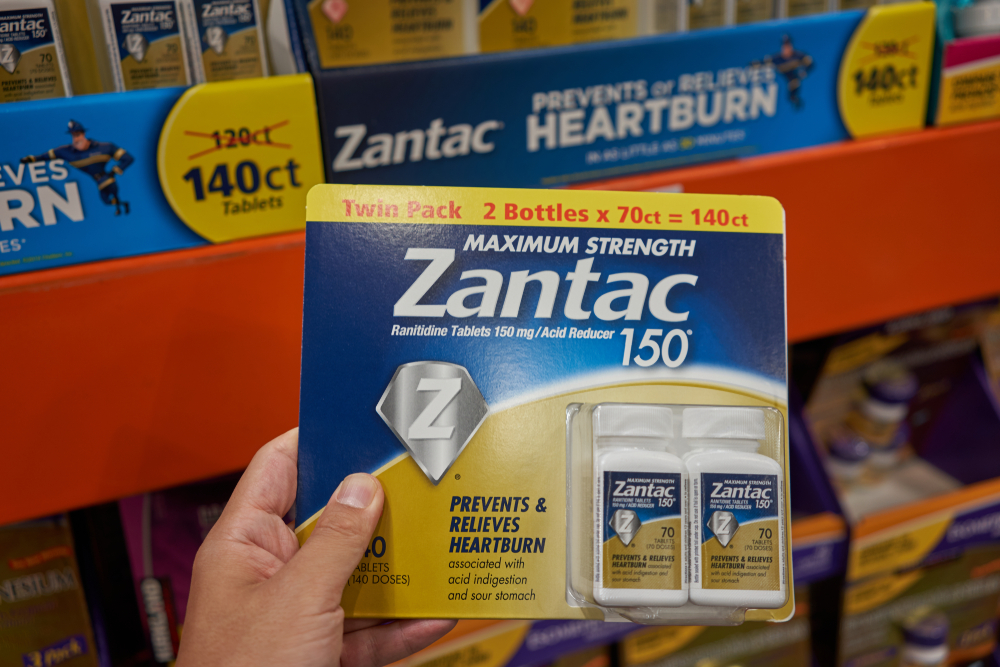With four in ten American adults considered medically obese, the promise of medication that can help people reach and maintain a healthy weight has the potential to save and extend thousands of lives.
That’s why there was much celebration in 2012 when Belviq, a weight-loss drug, was approved by the Food and Drug Administration, making it the first weight-loss medication to gain the FDA’s stamp of approval in more than 10 years.
But after the better part of a decade on the market, Belviq has since been linked to elevated risk of cancer, leading the FDA to issue a recall and at least one class-action lawsuit to be filed.
What should you know about the risks of Belviq, and what rights you might have if you took the medication?
- What Is Belviq?
- What Does Belviq Do?
- Belviq Side Effects
- Belviq & Cancer Risk
- Belviq Recalled
- Belviq Lawsuits
- What Should I Do if I Have Been Affected by Belviq?
- How Do I Know if I Qualify to Be Part of a Belviq Lawsuit?
- How Does a Belviq Lawsuit Work?
- How Long Does It Take to Settle a Belviq Lawsuit?
- What Is the Statute of Limitations on Belviq Lawsuits?
- How Much Can You Get From a Belviq Lawsuit?
- How Long Does It Take to Get Your Money After a Belviq Settlement?
What Is Belviq?
Manufactured by Eisai Co., Belviq is the brand name of a drug called lorcaserin that was approved in 2012 by the FDA to treat obesity. Arena Pharmaceuticals, the U.S. partner of Eisai, was the company that introduced Belviq to the American market, before selling the brand to Eisai in 2017.
Overweight and obesity are major health problems in the United States, and, according to data from the federal Centers for Disease Control and Prevention (CDC), more than 42% of American adults are obese and more than 9% are severely obese. About another 30% of American adults are considered overweight, meaning that almost three-quarters of U.S. adults are overweight or obese.
Drugs to stimulate weight loss have a long history in the U.S., though it’s a decidedly spotty one. From the so-called rainbow diet pills of the 1940s through the 1960s, to amphetamine-based weight loss drugs of the 1970s, to the fen-phen craze of the 1990s, effective and safe weight-loss drugs have remained elusive.
Before it was recalled, Belviq was relatively popular, with estimated global sales of nearly $200 million combined through 2018 and 2019. It came in two versions: Belviq, which was taken twice daily, and Belviq XR, which was an extended-release version taken once per day.
What Does Belviq Do?
Belviq works by stimulating certain receptors in the brain to reduce appetite. In other words, it makes people feel less hungry than they otherwise would.
It was prescribed to patients, along with exercise and reduced calorie intake, who were either clinically obese or who were overweight and had at least one weight-related condition like hypertension or diabetes.
According to studies by the manufacturer, the drug is effective in aiding in weight loss as well as reducing the risk of diabetes. In a 2018 report, the company said that Belviq reduced diabetes risk in those with pre-diabetes by 19%, while earlier efficacy studies indicated that the drug was associated with significantly elevated weight loss. In fact, patients on Belviq lost about 5.8% of their body weight over a two-year period, compared to about 2.2% in a placebo group.
What this means is that most scientific studies indicate that Belviq did help people lose more weight than they might have otherwise, but it’s important to note that it was prescribed along with dietary restriction and exercise, which most likely were the primary drivers of weight loss, not the drug itself.
Belviq Side Effects
Several major side effects have been noted in people who took Belviq, including:
- Hypoglycemia (about 29%)
- Headache (about 15%)
- Upper respiratory infection (about 14%)
- Cold (about 11%)
- Dizziness (about 7%)
- Fatigue (about 7%)
- Nausea (about 8%)
- Dry mouth (about 5%)
- Cognitive impairment (about 2%)
While these side effects were revealed in initial studies of the drug in 2013, it took until 2020 for the FDA to announce it was investigating a potential connection between Belviq and the risk of cancer. This discovery prompted the agency to request that Eisai withdraw all versions of the drug from the market.
Belviq & Cancer Risk
A five-year study showed a considerably higher risk of cancer in people taking Belviq vs. a placebo group, according to the FDA. In the study, which was designed to determine whether Belviq poses a risk of cardiovascular side effects, about 7.7% of patients taking Belviq were diagnosed with cancer, compared to 7.1% of the placebo group.
Several types of cancer were developed by Belviq patients in the study, but pancreatic, colorectal, and lung cancers were the most common. This is particularly troubling as these cancers are among those with the highest death rates.
In fact, more cancer deaths are expected to occur this year from those three types of cancer than any others, according to projections from the American Cancer Society. It’s estimated that more than 135,000 people will die from lung cancer this year, while colorectal cancer will kill about 53,000 and pancreatic cancer will claim upwards of 47,000 lives.
Belviq Recalled
On Feb. 13, 2020, the FDA announced it was seeking the removal of Belviq and Belviq XR. Eisai Co. voluntarily agreed to the request.
Patients who were taking Belviq should stop taking it immediately and contact their doctor about an alternative weight-management regimen. Learn more about safely disposing of Belviq here.
Eisai Co. has said that it will comply with the recall request by the FDA but that the company believes the drug “has a positive risk-benefit profile in the patient population” for which the drug is prescribed.
Even before it was recalled, Belviq had a troubled history with the FDA. The agency rejected the first attempt to market the drug in September 2010 because testing showed tumors in rats as well as a possible increase in heart-valve problems in people. After testing by the company indicated patients didn’t have heart-valve issues, regulators approved the drug for use in the U.S.
Belviq Lawsuits
So far, one known lawsuit has been filed over Belviq’s connection to cancer. A New York resident, Barbara Zottola, has filed a class-action lawsuit in the U.S. District Court’s Southern District of New York.
Zottola’s lawsuit names Eisai and Arena, as well as CVS Health Co., and makes a pair of major allegations:
- The drug exposed users to an elevated cancer risk.
- The companies knew that the medications raised the risk of cancer.
Zottola’s lawsuit seeks to establish a legal class that consists of any consumers who purchased Belviq or Belviq XR, though the lawsuit does not establish a compensation figure being sought. The suit does note that most insurance plans do not cover Belviq and that the drug costs about $300 per month, meaning that most users likely were paying out-of-pocket for the medication.
It’s likely that additional lawsuits will be filed as patients continue to become aware of the risks associated with Belviq.
What Should I Do if I Have Been Affected by Belviq?
Anybody who has been prescribed Belviq or Belviq XR as part of a weight-loss or weight-maintenance strategy should stop taking it and contact their doctor to discuss alternatives to the drug.
In its safety announcement, the FDA indicated that while many types of cancers were reported in Belviq users, three were more common than others. Here’s a look at the most common symptoms of those cancers that Belviq users should be aware of, according to the American Cancer Society:
Pancreatic
- Jaundice
- Belly or back pain
- Nausea and vomiting
- Enlarged gallbladder or liver
- Blood clots
- Diabetes
Lung
- Persistent, worsening cough
- Coughing up blood
- Chest pain that worsens when breathing deeply, coughing, or laughing
- Hoarseness
- Loss of appetite
- Shortness of breath
- Unexplained weight loss
- Fatigue
- Weakness
- Repeated respiratory infections
- Wheezing
Colorectal
- Changes in bowel habits, including diarrhea, constipation, or change in stool consistency
- Feeling need to have bowel movement that isn’t relieved by having one
- Bright red rectal blood
- Bloody stool, which may make stool look dark brown or black
- Cramping or abdominal pain
- Weakness
- Fatigue
- Unintended weight loss
While most people who took Belviq didn’t (or haven’t) developed cancer, it’s important for anybody who has taken Belviq to discuss their cancer risk with their doctor. Nobody wants to get a cancer diagnosis, but lung, pancreatic, and colorectal cancer account for nearly 40% of cancer deaths expected this year. According to the FDA’s analysis, those are the three types of cancer that are most commonly related to Belviq.
That’s why it’s critical for any former Belviq patient not only to stop taking the medication but to see their doctor for a possible cancer screening. You should also fill out our form to speak with a lawyer familiar with Belviq lawsuits if you believe that you may be owed compensation.
How Do I Know if I Qualify to Be Part of a Belviq Lawsuit?
Anybody who took Belviq or is the loved one of an individual who took Belviq and became seriously ill, including being diagnosed with cancer, may be eligible to file a lawsuit against Eisai Co., Arena Pharmaceuticals, and others.
It is not necessary to have become sick from taking Belviq to file a lawsuit, but those who were prescribed and took the drug should closely monitor their health under supervision from their doctor so they can be sure to note any symptoms that could be related to Belviq.
So far, one known class-action lawsuit has been filed against the makers of Belviq, and this suit alleges that the companies marketed a defective product and that they knew the drug was unsafe, but it’s likely additional lawsuits will be filed as more people become aware of the risks of Belviq and the total product recall.
Patients who took Belviq should gather their medical records, prescriptions, bills, and any other materials related to their treatment with Belviq so that they can be sure they’re eligible for any possible compensation in the event that they file or join a lawsuit.
The only way to know for sure if you qualify is to speak with an attorney, so fill out our form if you suspect that you may be owed compensation relating to Belviq.
How Does a Belviq Lawsuit Work?
All cases are unique and spring from a set of facts specific to each individual, or in class-action cases, a group of individuals. That said, with product liability cases like the one pending against Belviq, there are several important aspects to keep in mind.
All companies have a responsibility to ensure that the products they design, manufacture, and sell are as safe as possible and that consumers are made aware of any potential risks. In the lawsuit that has been filed against the makers of Belviq, the companies are being accused of failing on both measures.
Product liability lawsuits, like that against Belviq, involve proving four basic elements:
- The plaintiff was physically harmed or sustained some other type of damage because of the product. This could include financial losses.
- The product was defective and/or did not contain adequate instructions or warnings that would have allowed the plaintiff to avoid injury or loss.
- The defect, which could include lack of effective instructions or warnings, was the cause of the injury or loss.
- The plaintiff used the product as it was designed to be used.
Because the one known case against Belviq is still making its way through the courts, it’s difficult to predict which arguments will prove convincing, if any.
Do I Need a Lawyer to Join a Belviq Lawsuit?
One lawsuit has been filed against the makers of Belviq, and the plaintiff in that case is requesting that a judge establish a class of individuals. That request is pending, so there currently is no single class-action lawsuit against Belviq.
However, even if or when that request is approved and a class is established, until there is a major settlement announced, the best way to ensure that your case is heard is by contacting a qualified local attorney who can discuss your case with you and advise you on how to proceed.
Former Belviq users should continue to monitor current events regarding the case. If you fill out our form, a lawyer will be able to keep you up to date on developments regarding Belviq.
Has There Been a Settlement in Belviq Lawsuits?
No, there hasn’t been a settlement agreement reached over Belviq. It’s likely that dozens or even hundreds of former Belviq patients are considering lawsuits against the makers of the drug, but so far, only one case has been filed formally.
While it’s possible that a settlement will be reached to compensate all victims and former patients who took the drug, the chances are high that further court proceedings will be necessary to compel or convince the companies that made Belviq to agree to a mass settlement.
How Long Does It Take to Settle a Belviq Lawsuit?
To date, only one case has formally been filed against Belviq, and it has yet to wind its way through the court system. Because of this, it’s impossible to predict with any certainty when or if a settlement will be reached in that case, so there is no single answer to how long it might take to settle a Belviq case.
However, we can look to history to help us make some educated guesses. Product liability cases typically take at least a year or two to settle, though there have been liability lawsuits settled in just a few months. That does not seem to be likely in this case, though, as the New York plaintiff has requested a class of injured individuals to be established, which could serve to complicate and lengthen the process.
What Is the Statute of Limitations on Belviq Lawsuits?
State laws set a particular length of time in which a person can bring a lawsuit against a company, such as a product liability case against the makers of Belviq. Because these statutes of limitation are established on the state level, they vary across the country, and in each state, differing types of claims have different statutes of limitation.
In all cases, these statutes of limitation set a time limit that begins on the date of injury, but it’s not clear in the case of Belviq what that means for each specific plaintiff. For example, courts could decide that plaintiffs must bring their cases within the statute of limitations from the date of the FDA’s announcement of its finding that Belviq elevates cancer risk. Alternatively, the clock could begin ticking from the date when a person was first prescribed Belviq, depending on how the first lawsuit proceeds.
State statutes of limitation vary from a year (in Tennessee and Kentucky) to six years (in North Dakota and Maine), so former Belviq patients should consider contacting a qualified local attorney who is an expert in state law and can help them make decisions about how and when (or if) to file a lawsuit against Eisai, Arena, and other companies.
How Much Can You Get From a Belviq Lawsuit?
No settlement or verdict has been reached in the single known lawsuit that’s been filed so far over Belviq, so there’s not much use in guessing how much a jury verdict or settlement might total.
But former Belviq users should be aware of the types of damages for which they could seek compensation from the companies that made and marketed Belviq. Typically, plaintiffs will seek compensation for things like:
- Past medical expenses
- Ongoing medical expenses
- Lost wages
- Diminished enjoyment from life
- Pain and suffering
- Punitive damages
Other pharmaceutical cases have been settled for huge sums, though there’s no guarantee that will happen in this case. However, weight-loss drugs have been at the center of major court cases, including a 2000 settlement in which a $3.75 billion fund was established to compensate those who took fen-phen, which was linked to heart-valve problems.
And in 2020, Purdue Pharma executives pleaded guilty to federal charges and agreed to an $8 billion settlement over its marketing of OxyContin, so major settlements in pharmaceutical cases are possible.
How Long Does It Take to Get Your Money After a Belviq Settlement?
One reason settling a lawsuit is often considered more attractive than proceeding to trial is that plaintiffs typically receive compensation more quickly, and they don’t have to worry about the possibility that a judge or jury will reject their claims.
Any settlement in a Belviq case will spell out the details governing when plaintiffs can expect to receive compensation. In some cases, settlements include long-term payments, while others come in a single lump sum.
Once both sides have fully approved a settlement, such as in any future Belviq cases, it’s reasonable to expect to begin receiving funds within six to eight weeks, though, again, a specific schedule may be established in the settlement agreement.
The first step towards receiving funds in a Belviq lawsuit is speaking with expert representation who can determine if you’re eligible and what you might be owed, so fill out our form to get started.





